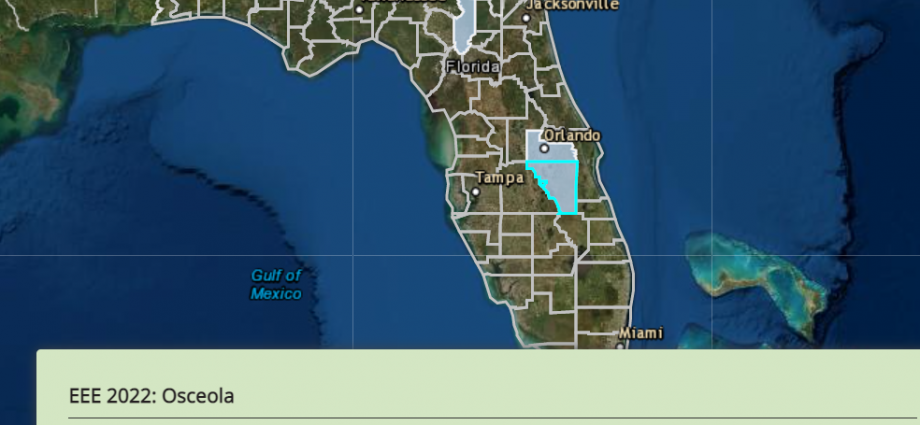In a follow-up on the Eastern Equine Encephalitis (EEE) situation in Florida this year, The Florida Department Agriculture and Consumer Services has reported three additional cases in Orange (1) and Osceola counties (2), bringing the state total to four.

No human EEE cases have been reported to date in Florida.
Eastern Equine Encephalitis with Steven LaRosa, MD
In horses, the virus causes inflammation or swelling of the brain and spinal cord. General symptoms include central nervous system signs such as: head pressing, convulsions, lack of response to facial stimulation, fever above 103 degrees, ataxia, paralysis, anorexia, depression and stupor. Other symptoms may include irregular gait, teeth grinding, in-coordination, circling, and staggering. All symptoms may not be exhibited by an infected horse.
The mortality rate in horses from EEE is almost 90%.
In humans, symptoms of EEE disease often appear 4 to 10 days after someone is bitten by an infected mosquito.
EEE is a more serious disease than West Nile Virus (WNV) and carries a high mortality rate for those who contract the serious encephalitis form of the illness. Symptoms may include high fever, severe headache, stiff neck, and sore throat. There is no specific treatment for the disease, which can lead to seizures and coma.
FLORIDA REPORTS HEPATITIS A OUTBREAK, VACCINE RECOMMENDATIONS
MENINGOCOCCAL DISEASE AND VACCINES IN FLORIDA: HEALTH DEPARTMENTS ADVISE
FRESH STRAWBERRIES LINKED TO HEPATITIS A OUTBREAK
FLORIDA: ORANGE COUNTY HEALTH OFFICIALS WARN OF NAEGLERIA FOWLERI AS SUMMER APPROACHES







1 Comment